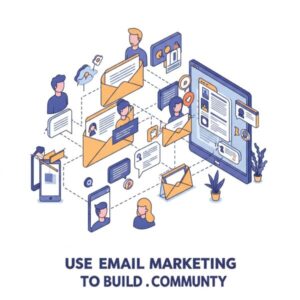6 B2B Brand Strategy and Internet Tactics in 2024

Today we are going to discuss and compare different b2b brand strategy and tactics used. We are going to go through different methods businesses use to reach new customers in todays digital world.
In this comprehensive guide, we’ll explore proven digital marketing strategies and tactics tailored specifically for B2B enterprises aiming to drive growth.
What is B2B Brand Strategy?
As we step into 2024, the B2B internet marketing landscape and digital marketing strategies and tactics continues to evolve at a rapid pace. Driven by technological advancements, changing consumer behaviors, and emerging trends. To stay competitive in this dynamic environment, B2B marketers must keep a pulse on the latest trends shaping the industry. In this article, we’ll explore the top B2B internet marketing trends to watch out for in 2024 and how businesses can leverage them to drive growth and success.
In the fast-paced realm of business-to-business (B2B) marketing, the landscape is constantly evolving. As consumer behavior shifts, technology advances, and competition intensifies, it’s crucial for B2B marketers to adapt and refine their strategies to stay ahead.
Understanding the B2B Internet Marketing Landscape
Before diving into specific tactics, it’s essential for you to grasp the unique dynamics of B2B marketing.
Unlike business-to-consumer (B2C) marketing, where transactions often involve individual consumers, B2B transactions typically occur between businesses, involving longer sales cycles, multiple stakeholders, and higher-value transactions.
The 3 main point here are:
- Define Your Target Audience: Begin by clearly defining your target audience. Identify key decision-makers, influencers, and stakeholders within your target companies. Understand their pain points, goals, and challenges to tailor your marketing efforts effectively.
- Craft Compelling Value Propositions: Develop clear and compelling value propositions that resonate with your target audience. Highlight the unique benefits and solutions your products or services offer to address their specific needs and pain points.
- Leverage Data and Analytics: Utilize data and analytics to gain insights into your target audience’s behavior as well as preferences, and interactions with your brand. Monitor key performance indicators (KPIs) such as website traffic, conversion rates, and lead quality to measure the effectiveness of your marketing efforts. Make data-driven decisions.
1. Personalization at Scale
Personalization has been a buzzword in marketing for years, but in 2024, it’s more important than ever, especially in the B2B space. With advances in data analytics and AI-driven marketing automation, businesses can now personalize their marketing efforts at scale. From tailored email campaigns to personalized website experiences, B2B marketers are harnessing the power of data to deliver relevant content and messages to individual prospects and customers. Ultimately driving engagement and conversion rates.
3. Conversational Marketing
In an era of instant communication and on-demand service, B2B buyers expect real-time interactions with brands. Conversational marketing – leveraging chatbots, live chat, and messaging apps – is becoming increasingly prevalent in the B2B space. By providing immediate assistance, answering questions, and guiding prospects through the buyer’s journey, businesses can enhance customer experience, shorten sales cycles, and drive higher conversion rates. In 2024, expect to see more B2B marketers embracing conversational marketing as a key component of their digital strategy.
4. Video Content Dominance
Video continues to reign supreme as the most engaging and compelling form of content, and in 2024, its importance in B2B marketing cannot be overstated. With the rise of remote work and virtual collaboration, B2B buyers are consuming more video content than ever before. From product demos and explainer videos to thought leadership content and customer testimonials. Video allows B2B marketers to convey complex ideas and build trust with their audience in a visually appealing and easily digestible format.
5. Sustainability and Purpose-Driven Marketing
In today’s socially conscious world, B2B buyers are placing increasing importance on sustainability, ethical business practices, and corporate social responsibility. In 2024, we’re seeing a growing trend towards purpose-driven marketing in the B2B space. Businesses that align their values with those of their customers and demonstrate a commitment to sustainability and social impact are not only attracting more customers but also fostering long-term loyalty and brand advocacy.
6. The Rise of Voice Search and AI
With the proliferation of voice-activated devices and AI-powered assistants, voice search is becoming a significant driver of B2B search traffic. In 2024, B2B marketers are optimizing their content and SEO strategies to cater to voice search queries. Focusing on long-tail keywords, natural language, and conversational phrases. Additionally, AI-powered tools and algorithms are revolutionizing various aspects of B2B marketing. From predictive analytics and lead scoring to content optimization and customer insights. Businesses streamline processes, improve efficiency, and deliver more personalized experiences.
Some Examples and Effective B2B Brand Strategies:
Now let’s delve into some proven digital marketing strategies and tactics tailored for B2B enterprises:
- Content Marketing: Content marketing remains a cornerstone of B2B brand marketing strategies. Create high-quality, informative content that educates, engages, and provides value to your target audience. Develop a content calendar and publish a mix of blog posts, whitepapers, case studies, e-books, and videos to showcase your expertise and thought leadership in your industry.
- Search Engine Optimization (SEO): Optimize your website and content for search engines to improve your visibility and attract organic traffic. Conduct keyword research to identify relevant keywords and phrases that your target audience is searching for. Optimize your website structure, meta tags, headings, and content to align with these keywords and improve your search rankings.
- Email Marketing: Email marketing remains one of the most effective channels for B2B lead generation and nurturing. Build targeted email lists segmented by industry, role, or stage in the buying cycle. Personalize your email campaigns and provide valuable content, such as industry insights, product updates. Add exclusive offers, to engage your subscribers and drive conversions.
- Social Media Marketing: While B2B companies may not rely heavily on social media compared to their B2C counterparts, platforms like LinkedIn, Twitter, and Facebook can still be valuable. Building brand awareness, fostering industry connections, and engaging with your audience. Share thought leadership content, participate in industry discussions, and leverage social advertising to reach your target audience effectively.
And here are some additional examples:
- Account-Based Marketing (ABM): ABM is a highly targeted approach that focuses on identifying and engaging key accounts or high-value prospects. Customize your marketing efforts to address the specific needs and challenges of each target account. Use personalized content, targeted ads, and one-to-one outreach to nurture relationships and drive conversions.
- Marketing Automation: Implement marketing automation tools and workflows to streamline your processes, nurture leads, and drive efficiency. Use automations to deliver personalized content. Trigger email campaigns based on user behavior, and score leads based on their engagement and readiness to purchase.
Measuring Success and Iterating
Finally, it’s crucial to continuously monitor and measure the performance of your digital marketing efforts. Track KPIs such as website traffic, conversion rates, lead quality, and return on investment (ROI) to assess the effectiveness of your strategies and tactics. Use A/B testing to experiment with different approaches and optimize your campaigns for better results over time.

FAQ: B2B Brand Strategy – Everything You Need to Know
1. What is B2B brand strategy?
B2B brand strategy is the long-term plan businesses use to position their brand, differentiate from competitors, and build trust with other businesses. It involves brand messaging, visual identity, content marketing, and customer experience to establish credibility and drive business growth.
2. Why is brand strategy important for B2B companies?
A strong B2B brand strategy helps companies:
- Build trust and credibility in the market.
- Differentiate from competitors in a crowded industry.
- Increase customer loyalty and long-term partnerships.
- Drive higher conversions and revenue through consistent branding.
3. What are the key components of a successful B2B brand strategy?
A successful B2B brand strategy includes:
- Brand Positioning – Defining how your brand stands out in the market.
- Brand Messaging – Crafting a compelling value proposition and communication style.
- Visual Identity – Designing a professional and consistent brand look.
- Content Marketing – Creating valuable content to engage and educate your audience.
- Customer Experience – Ensuring a seamless and trustworthy brand interaction.
4. How does B2B branding differ from B2C branding?
While B2C branding focuses on emotional appeal and impulse buying, B2B branding is more logic-driven, emphasizing trust, expertise, and long-term relationships. B2B buyers need detailed information, case studies, and proof of ROI before making a decision.
5. How can a B2B company improve its brand strategy?
To enhance your B2B brand strategy:
- Clearly define your unique value proposition.
- Invest in high-quality content marketing and thought leadership.
- Build a strong online presence with a professional website and SEO.
- Leverage social media platforms like LinkedIn for networking and brand awareness.
- Offer exceptional customer service to reinforce trust and loyalty.
6. How does SEO impact B2B brand strategy?
SEO helps B2B brands increase visibility, attract qualified leads, and establish authority in their industry. Optimizing content for industry-related keywords, creating educational blog posts, and leveraging LinkedIn SEO can significantly improve brand reach and credibility.
7. What role does content marketing play in B2B brand strategy?
Content marketing is essential for B2B brand strategy as it helps businesses educate their audience, showcase expertise, and generate leads. Common content formats include:
- Whitepapers & eBooks
- Case studies
- Blog posts
- Webinars & video content
- LinkedIn articles & thought leadership pieces
8. How do you measure the success of a B2B brand strategy?
Key performance indicators (KPIs) for measuring B2B brand strategy success include:
- Brand Awareness: Website traffic, social media engagement, and PR mentions.
- Lead Generation: Number of inbound leads and conversions.
- Customer Retention: Client satisfaction scores and repeat business.
- Thought Leadership: Backlinks, industry recognition, and guest speaking opportunities.
9. What are some common B2B branding mistakes to avoid?
- Lack of differentiation – Failing to stand out in a competitive market.
- Inconsistent messaging – Sending mixed signals across different platforms.
- Ignoring content marketing – Not leveraging valuable content to engage and nurture leads.
- Poor website UX – A difficult-to-navigate website can hurt credibility and conversions.
- Neglecting customer experience – B2B relationships rely on trust and high-quality service.
10. How can social media support B2B brand strategy?
Social media platforms like LinkedIn, Twitter, and YouTube are powerful tools for B2B branding. They help businesses:
- Establish thought leadership through valuable content.
- Connect with industry professionals and potential clients.
- Share company updates, case studies, and customer success stories.
- Drive traffic to their website and generate high-quality leads.
11. What are the best platforms for B2B brand marketing?
The most effective platforms for B2B brand marketing include:
- LinkedIn – Best for networking, thought leadership, and lead generation.
- Google (SEO & PPC) – Essential for organic search visibility and paid ads.
- YouTube – Ideal for educational videos, webinars, and industry insights.
- Email Marketing – Effective for nurturing leads and client communication.
12. How long does it take to see results from a B2B brand strategy?
B2B brand strategy is a long-term investment. While some tactics like paid advertising can generate quick results, organic brand-building efforts (content marketing, SEO, and thought leadership) typically take 6 to 12 months to show significant growth.
Conclusion
In conclusion, successful B2B digital marketing requires a strategic approach that aligns with the unique characteristics of the B2B landscape. By understanding your target audience, leveraging the right mix of digital marketing channels, and measuring your results, you can drive growth, enhance brand visibility, and achieve your business objectives in today’s competitive marketplace

A Digital Marketer with over 10 years experience. Helping You Master SEO, Social Media and Online Promotion.







